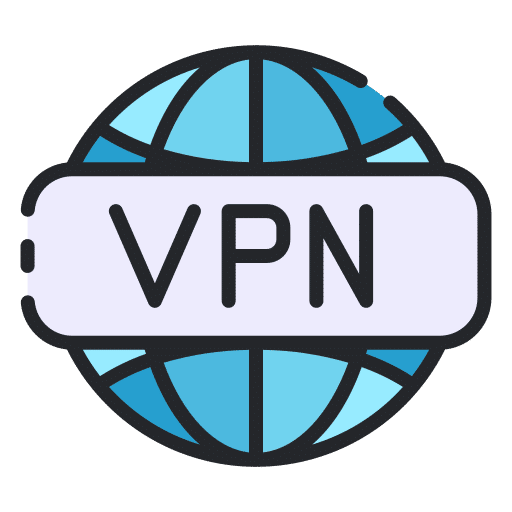

By encrypting your traffic to routing it through a server in another location, VPN or Virtual Private Networks, helps in protecting your privacy online. It aids to keep your online activity hidden from your ISP and third parties.
How VPN works
Numerous VPN service providers are accessible, and they give a range of features and price ranges. It’s critical to take your demands and money into account when selecting a VPN.Some factors to consider include:
- Security: Choose a VPN that uses strong encryption protocols, such as OpenVPN or IKEv2.
- Privacy: Choose a VPN with a good privacy policy and that does not log your activity.
- Speed: Select a VPN provider with a huge network of servers spread across several regions.
- Features: Some VPNs come with extra features like split tunneling, obfuscation, and kill switches. Consider which features are important to you when choosing a VPN.
You can begin utilizing a VPN to safeguard your online privacy as soon as you’ve made your choice. Here are a few tips:
- Connect to a VPN before browsing the internet. This will encrypt all of your traffic and keep your online activity hidden from your ISP, government, and other third parties.
- Use a VPN whenever you are using public Wi-Fi. Public Wi-Fi networks are often unsecured, and hackers can easily intercept your traffic if you are not using a VPN.
- To access content and websites that are restricted, use a VPN. With the use of a VPN, you can get around geo-restrictions and visit websites and material that are restricted in your area.
- When playing games or watching videos online, use a VPN to safeguard your privacy. VPNs can help to prevent your ISP from throttling your bandwidth and improve your gaming and streaming experience.
Here are some additional tips for using a VPN to protect your privacy online:

- Use strong passwords for your VPN account and other online accounts.
- An extra degree of protection is added to your online accounts with 2FA. An extra degree of protection is added to your online accounts with 2FA.
- Be careful about what information you share online. Refrain from disclosing personal information on websites and social media.
- Keep your software up to date. Security patches that might help shield you from malware and other risks are frequently included in software upgrades.
You may use a VPN to safeguard your online privacy and prevent third parties from seeing what you do online by using these recommendations.
Additional tips for protecting your privacy online
- Use a privacy-focused browser. Browsers like DuckDuckGo and Firefox Focus offer features that can help to protect your privacy online.
- Use ad blockers. Ad blockers can help to protect you from tracking cookies and other online threats.
- Take caution when installing apps on your gadgets.. Only install apps from trusted sources.
- Prior to utilizing any apps or websites, check their privacy policies. Make sure you understand how your data is being collected and used.
By following these tips, you can take steps to protect your privacy online and keep your personal information safe.
FREQUENTLY ASKED QUESTIONS:
Q: What is a VPN?
A: VPN stands for virtual private network. It is a tool that encrypts your internet traffic and routes it through a server in another location. This makes it appear as if you are browsing the internet from that location, rather than your actual location. This can be useful for protecting your privacy, bypassing geo-restrictions, and securing your public Wi-Fi connection.
Q: How does a VPN protect my privacy online?
A: A VPN protects your privacy online by encrypting your traffic and hiding your IP address.All of your traffic is routed through the VPN server when you connect to one. This means that your ISP, government, and other third parties cannot see what websites you are visiting or what data you are sending and receiving.
Q: What are the benefits of using a VPN?
A: There are many benefits to using a VPN, including:
- Protecting your privacy online
- Bypassing geo-restrictions
- Securing your public Wi-Fi connection
- Improving your internet speeds
- Accessing blocked websites and content
Q: How do I choose a VPN?
A: The following elements should be taken into account while selecting a VPN:
- Security: Choose a VPN that uses strong encryption protocols, such as OpenVPN or IKEv2.
- Privacy: Choose a VPN with a good privacy policy and that does not log your activity.
- Speed: Select a VPN provider with a huge network of servers spread across several regions.
- Features: Additional features like split tunneling, kill switches, and obfuscation are available with certain VPNs.
Q: How do I use a VPN?
A: To use a VPN, you will need to subscribe to a VPN service and download the VPN client software. Once you have installed the VPN client software, you can connect to a VPN server by opening the VPN app and selecting a server.
Q: Are VPNs legal?
A: VPNs are legal in most countries. However, there are a few countries where VPNs are banned or restricted.
Q: Are VPNs safe?
A: Yes, VPNs are generally safe to use. However, it is important to choose a reputable VPN provider that uses strong encryption protocols and has a good privacy policy.










